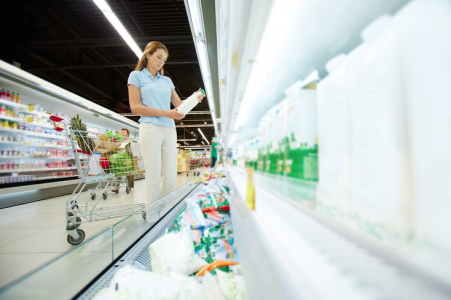Dairy crisis imminent as drivers and factory workers plan to strike at 14 sites
By
VanessaC
- Replies 5
Victoria's embattled dairy industry are facing major disruptions this week, as milk tanker drivers in eastern Victoria stop work from 3 a.m. Tuesday, and up to 1,400 dairy factory workers across regional and metropolitan Melbourne go on strike.
Tim Kennedy, the National Secretary for the United Workers Union (UWU) and the representative for dairy factory workers said that the 48-hour protected planned action against four major processors—Saputo, Lactalis Australia, Fonterra, and Peters Icecream—are the workers’ last option after a lengthy dispute over wages and work conditions.
'This is the biggest dairy action in living memory, it's never happened on this scale,' Mr Kennedy shared.
The strike means a cease in operations at 14 sites, including Longwarry, Leongatha, and Darnum in eastern Victoria, Warrnambool in the south-west along with Kiewa, Cobden, Tangambalanga, Stanhope and Cobram in the north, and Laverton and Mulgrave in Melbourne.
The UWU factory workers are calling for a 5 per cent increase in their wages for three years, and Mr Kennedy added that they are also demanding job security for labourers and wanted large 'transnational' processors to acknowledge the crisis in the dairy industry in Victoria.
'[We] need these corporations to invest and plan and to help rebuild the milk supply in Victoria to make certain that the regional communities are sustainable,' Mr Kennedy said.
'These jobs used to be able to build a life [for workers] in these communities, now they're under threat.'
Looming shortage of milk and cheese
A shortage of milk and other dairy products is said to be possible if both strikes drag on.
As milk factories process perishable goods, there would definitely be an impact on the supply chain, according to Mr Kennedy.
'All the products are at risk, not just fresh milk—all cheeses, yoghurts, and ice cream,' he said.
Milk tanker drivers who collect milk from farms have stopped work, preventing milk pick-up.
Mike McNess, Branch Secretary of the Transport Workers Union (TWU) in the Maffra and Leongatha region, added that there will be additional action in Victoria’s northern districts.
Drivers reportedly feeling the pressure
Drivers' voiced their frustrations and are striking against processor Saputo due to their proposed shift change notifications, changes to their start time at work. They are also requesting a higher pay offer.
Mr McNess acknowledged that the action may have an effect on farmers and consumers but highlighted the extreme pressure drivers are experiencing 'from the top of the supply chain'.
'Unfortunately, it's almost unprecedented action, but it's the only option that's available to [union members] at the moment,' he said.
'These tanker drivers worked throughout the pandemic.'
'They took a very small pay rise throughout the life of their last agreement, and they're looking to get some recognition for the work they do.'
Farmers are worried about wasting milk
With milk being a perishable product, farmers are worried about waste and environmental harm if milk is not collected.
Mark Billing, President of Dairy Farmers of Victoria, said most farms can only store milk for about three days if tankers are unable to pick up their supply.
However, cows produce more milk during spring, which means farmers may be forced to dump milk.
'The [strike] timing is not ideal being at the peak of the season, and most farms are relying on same day pick up,' Mr Billing explained.
'The potential environmental impact could be quite high if milk is not picked up.'
Mr Billing added that while farmers would still be paid, the impact on consumers and processors who have been struggling with higher costs should also be considered.
'The action [being] taken by the unions has a flow-on effect. It's not just the dairy farmers, it's farm workers, it's communities, and our consumers.'
In response, Fonterra Australia’s Supply Chain and Operations Director, Rob Howell, claimed that the company had engaged in good faith negotiations with the union for months.
'We have a fair and reasonable offer on the table of a minimum 10.5 per cent salary increase over three years plus more leave options and greater protections for our workers,' he explained.
'Our people covered by this agreement are paid significantly higher than the award, and we were committed to our people during COVID-19 when we provided them with pay increases of 2.5 per cent, 2.5 per cent and 2.75 per cent in 2020, 2021 and 2022, respectively.'
'Our farmers will continue milking, and we will be doing everything we can to ensure that their precious, perishable milk can be collected and not wasted.'
On the other hand, Lactalis Australia said that they were working closely with farmers to minimise the impact this coordinated strike brings forth.
They also said they would continue to negotiate with the unions in good faith to achieve a fair and equitable outcome.
Saputo and Peters Icecream, on the other hand, have yet to give their comment on the situation.

Members, what are your thoughts on this news? Share them with us in the comments below!
Tim Kennedy, the National Secretary for the United Workers Union (UWU) and the representative for dairy factory workers said that the 48-hour protected planned action against four major processors—Saputo, Lactalis Australia, Fonterra, and Peters Icecream—are the workers’ last option after a lengthy dispute over wages and work conditions.
'This is the biggest dairy action in living memory, it's never happened on this scale,' Mr Kennedy shared.
The strike means a cease in operations at 14 sites, including Longwarry, Leongatha, and Darnum in eastern Victoria, Warrnambool in the south-west along with Kiewa, Cobden, Tangambalanga, Stanhope and Cobram in the north, and Laverton and Mulgrave in Melbourne.
The UWU factory workers are calling for a 5 per cent increase in their wages for three years, and Mr Kennedy added that they are also demanding job security for labourers and wanted large 'transnational' processors to acknowledge the crisis in the dairy industry in Victoria.
'[We] need these corporations to invest and plan and to help rebuild the milk supply in Victoria to make certain that the regional communities are sustainable,' Mr Kennedy said.
'These jobs used to be able to build a life [for workers] in these communities, now they're under threat.'
Looming shortage of milk and cheese
A shortage of milk and other dairy products is said to be possible if both strikes drag on.
As milk factories process perishable goods, there would definitely be an impact on the supply chain, according to Mr Kennedy.
'All the products are at risk, not just fresh milk—all cheeses, yoghurts, and ice cream,' he said.
Milk tanker drivers who collect milk from farms have stopped work, preventing milk pick-up.
Mike McNess, Branch Secretary of the Transport Workers Union (TWU) in the Maffra and Leongatha region, added that there will be additional action in Victoria’s northern districts.
Drivers reportedly feeling the pressure
Drivers' voiced their frustrations and are striking against processor Saputo due to their proposed shift change notifications, changes to their start time at work. They are also requesting a higher pay offer.
Mr McNess acknowledged that the action may have an effect on farmers and consumers but highlighted the extreme pressure drivers are experiencing 'from the top of the supply chain'.
'Unfortunately, it's almost unprecedented action, but it's the only option that's available to [union members] at the moment,' he said.
'These tanker drivers worked throughout the pandemic.'
'They took a very small pay rise throughout the life of their last agreement, and they're looking to get some recognition for the work they do.'
Farmers are worried about wasting milk
With milk being a perishable product, farmers are worried about waste and environmental harm if milk is not collected.
Mark Billing, President of Dairy Farmers of Victoria, said most farms can only store milk for about three days if tankers are unable to pick up their supply.
However, cows produce more milk during spring, which means farmers may be forced to dump milk.
'The [strike] timing is not ideal being at the peak of the season, and most farms are relying on same day pick up,' Mr Billing explained.
'The potential environmental impact could be quite high if milk is not picked up.'
Mr Billing added that while farmers would still be paid, the impact on consumers and processors who have been struggling with higher costs should also be considered.
'The action [being] taken by the unions has a flow-on effect. It's not just the dairy farmers, it's farm workers, it's communities, and our consumers.'
In response, Fonterra Australia’s Supply Chain and Operations Director, Rob Howell, claimed that the company had engaged in good faith negotiations with the union for months.
'We have a fair and reasonable offer on the table of a minimum 10.5 per cent salary increase over three years plus more leave options and greater protections for our workers,' he explained.
'Our people covered by this agreement are paid significantly higher than the award, and we were committed to our people during COVID-19 when we provided them with pay increases of 2.5 per cent, 2.5 per cent and 2.75 per cent in 2020, 2021 and 2022, respectively.'
'Our farmers will continue milking, and we will be doing everything we can to ensure that their precious, perishable milk can be collected and not wasted.'
On the other hand, Lactalis Australia said that they were working closely with farmers to minimise the impact this coordinated strike brings forth.
They also said they would continue to negotiate with the unions in good faith to achieve a fair and equitable outcome.
Saputo and Peters Icecream, on the other hand, have yet to give their comment on the situation.
Key Takeaways
- Thousands of dairy factory workers and milk tanker drivers in Victoria started a strike this week over wages and conditions, potentially causing shortages of milk, cheese, and yoghurt.
- The industrial action is against Saputo, Lactalis Australia, Fonterra, and Peters Icecream at 14 sites across Victoria.
- The president of Dairy Farmers of Victoria has raised concern over the potential environmental impact if milk is not collected from farms.
- Both Fonterra and Lactalis Australia have made statements expressing their commitment to negotiate with the unions. They also claimed to have been offering fair pay and work condition deals.
Last edited:








